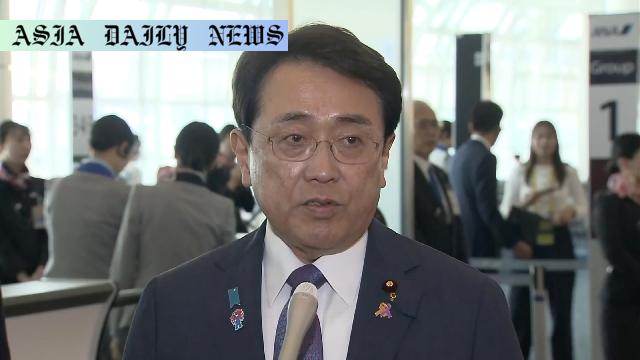Tariffs: Japan regrets tariffs on vehicles, steel, and aluminum, advocating for full removal as economic reforms advance.
Japan is advocating for the removal of US tariffs on key industrial products.
Economic Minister highlights the unresolved state of trade issues.
Tariffs impact vehicle parts, steel, aluminum, and US-Japan trade relations.

Introduction: Understanding Japan’s Trade Concerns
Japan’s economic policymakers have raised concerns over unresolved trade disputes with the United States. While nations such as the UK and the US continue to strike meaningful trade partnerships, Japan finds itself grappling with longstanding tariffs that significantly impact its economy. The Japanese Economic Revitalization Minister, Akazawa Ryosei, has been vocal about Japan’s stance on completely removing tariffs on automobiles, vehicle parts, steel, and aluminum products imposed by the US. This call for reforms reflects the urgency with which Japan is approaching the situation to secure fair and free trade agreements.
The Scope of the Tariff Problem
These trade impediments are not just numbers on paper; they affect industries critical to Japan’s economy. For instance, tariffs on automobiles and vehicle parts could potentially create ripple effects across Japan’s automotive industry, which is a major driver of its economy and innovation. Similarly, tariffs on steel and aluminum products lead to increased production costs, making global trade more challenging for Japanese businesses. These industries represent key export segments that need unhindered access to international markets for sustainable growth. Japan’s appeals to remove these tariffs reflect a need to protect its economic interests while promoting a balanced trade relationship with the United States.
Efforts to Seek Fair Ground in Trade Discussions
Japan’s trade officials, including Trade Minister Muto Yoji, emphasize the intricacies of assessing existing agreements between other countries, such as the recent US-UK trade deal. These evaluations are crucial for formulating strategies to negotiate better terms with the United States. Japan aims to bring constructive proposals to the negotiation table that will result in mutual benefits. Ministers have reiterated that Japan has always taken a firm stance against trade barriers, underscoring the need for smoother, unrestricted international trade practices.
Future Implications of Resolving Tariff Issues
Resolving these tariff issues will undeniably strengthen the US-Japan bilateral relationship and provide a model for addressing global trade disputes. It also represents an opportunity for Japan to reestablish its position as a global economic leader by ensuring that its industries can compete fairly on the international stage. Furthermore, resolving these issues will drive economic growth, not only for Japan but also for the US, as both countries explore more equitable trade practices.
Conclusion
The emphasis Japan places on removing tariffs illustrates its commitment to a fair and prosperous global trade environment. While progress may be slow, its insistence on these reforms ensures that the issue remains a priority in international trade relations. These negotiations will set a precedent that could positively impact trade practices worldwide, fostering a system where economic cooperation and mutual benefit are prioritized.



Commentary
The Global Impact of Fair Trade Agreements
Trade disputes like those between Japan and the United States go beyond the two countries; they affect the global economic ecosystem. Tariffs can often provide short-term protection for domestic industries, but they come with long-term consequences that hinder meaningful international growth. Japan’s insistence on reforming these tariffs reflects its role as a strong advocate for transparent and equitable trade practices. This broader ambition can serve as a catalyst for other nations to reassess and recalibrate their policies towards free trade.
The Importance of Industry Collaboration
One striking point in this discussion is the focus on critical industries such as automobiles and steel, which are vital not just for Japan, but for global supply chains. The United States and Japan must recognize the potential benefits of working collaboratively in these high-stakes industries. Trade agreements that reduce friction and improve collaboration can amplify innovation, optimize production processes, and lead to better products for consumers around the world. Addressing these tariffs should not be a matter of competition but one of cooperation.
Looking Ahead: What This Means for Global Economic Stability
Resolutions to these trade issues between such significant players will serve as a beacon for other countries struggling with similar disputes. It underscores the importance of remaining firm on core principles of fairness while being flexible enough to negotiate terms that benefit all involved parties. If Japan and the US successfully resolve these issues, it will send a strong message about the value of compromise and collaboration. Moreover, it would emphasize that economic success in the 21st century demands adaptability and mutual understanding between nations.